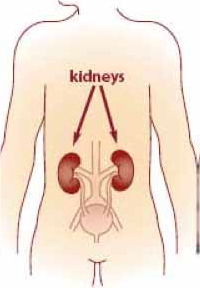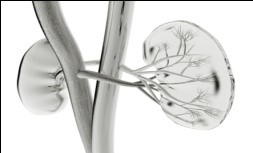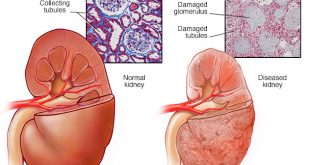Renal disease: a growing problem with serious consequences
Renal disease is a growing problem in Malaysia. The most severe stage of kidney disease will require dialysis treatment in order to sustain life. This terrible consequence represents the total failure of the kidney function: we call it end-stage kidney failure. According to figures taken from the Malaysian National Renal Registry report 2011, in Malaysia, the number of new end-stage kidney failure patients started on dialysis is on the rise: 5201 in 2011 compared to 3137 in 2005. Diabetes Mellitus has been the major culprit responsible for more than 56% of new dialysis patients in 2011. To prevent the progression of kidney disease requires at the very least, early diagnosis using simple blood and urine test with your family doctors.
Why can the renal disease be difficult to tackle?
An early renal disease may not present with signs or symptoms. You may not know you have it if you do not look for it. Once a renal disease is diagnosed, it usually does not go away. However, renal disease can be treated. The earlier you know you have it, the better. Simple blood and urine tests can pick up undiagnosed kidney disease.
How serious can renal disease become?
By and large, renal disease can cause a gradual worsening of kidney function. It may take months or years to develop into kidney failure. How fast the progression will depend on the type and severity of the underlying renal disease, how soon treatments were started and the regular use of drugs or traditional preparations that may threaten kidney function.
Who should I consult for the treatment of renal disease?
You can consult the Nephrologist who is the kidney disease specialist looking after patients with renal disease. General physicians or general practitioners, however, can also perform medical examination and basic testing for renal diseases.
How to prevent renal disease?
We can avoid damage to the kidneys by practicing a healthy lifestyle and healthy eating habits. In addition, obesity should be avoided as it is associated with diabetes and hypertension which can have damaging effects on kidney function. Minimize the long-term use of painkillers purchased over the pharmacy counter or from a traditional healer. Use of health supplements or tonics from an unverified source may result in kidney damage and would require prior consultation with your family doctor. Unfortunately, renal diseases of genetic origin are not preventable.
How to delay renal disease from getting worse?
There are multiple approaches one can consider:
- Early detection ensures early treatment
Early diagnosis of renal disease will lead to early treatment before it is too late. This can be achieved by screening for renal disease in those who are at risk of renal disease:
- Diabetics
- Individuals with high blood pressure
- Elderly individuals whose age is > 65 years old
- Individuals with a family history of renal disease
- Individuals with a history of kidney stones, prostate or urinary tract problems
- Individuals with long-term use of drugs that can cause damage to the kidneys e.g. non-steroidal anti-inflammatory drugs (NSAIDs), cyclooxygenase-II inhibitor (COX-2 inhibitor)
- Individuals with heart disease, stroke or poor blood supply to the hands and feet
- Individuals with autoimmune disease of systemic lupus erythematosus
- Healthy living is essential to kidney health
Healthy lifestyle e.g. exercise, weight reduction and maintenance, smoking cessation. Salt reduction to < 2400 g/day (1 teaspoon) is advised to achieve better blood pressure control. Smoking should be stopped.
- Achieve treatment targets through regular medical follow-up
Regular follow-up with a doctor to monitor blood pressure, blood sugar (if diabetic), blood and urine results. Appropriate medications can be initiated accordingly. Target blood pressure should be at least less than 140/90; more stringent control of < 130/80 is needed for those who has high protein level in the urine of >1g per day. For patients with diabetes, better control of their blood sugar is associated with slower decline in kidney function. Blood sugar control can be monitored by measuring the HbA1c level with the target of < 7%.
- Useful medication
Angiotensin-converting enzyme inhibitors (ACEi) or the angiotensin receptor blockers (ARB) are specific drugs used to protect the kidneys. They can reduce the excessive leakage of protein in the urine as well as lower the blood pressure. The use of these drugs requires great care as they are associated with certain side effects related to increased potassium levels in the blood as well as compromising kidney function in certain cases. Do consult your physician/nephrologist before commencing on this drug as regular monitoring is required.
- “Toxins” to avoid
For patients with renal disease, they are vulnerable to develop kidney damage as a result of using certain drugs. Slimming pills that cause substantial fluid losses, NSAIDs and COX 2 inhibitors for pain relief, traditional or herbal preparations are some examples.
- Pregnancy is a threat to patients with compromised kidney function
Young female patients who are suffering from moderate to severe
renal disease must avoid pregnancy which can result in worsening
or failure of the already compromised kidney functions. Effective
contraception is strongly recommended after discussion with the gynecologist.
References and useful links
- The Malaysian Clinical Practice Guidelines of Management of Chronic Kidney Disease in Adults, Ministry of Health Malaysia. June 2011. Retrieved 17/11/2012. http://www.moh.gov.my/cpgs/83
- Desai T, Stankeyeva D. Protecting Kidney Function. Retrieved 17/11/2012. http://www.aakp.org/aakp-library/Protecting-Kidneys/
- How to protect your kidneys. http://kidneytrust.org/learn/protect-kidneys/
- Edmundson A. (19th April, 2012) Understanding kidney disease – Prevention. Retrieved 17/11/2012. http://www.webmd.com/a-to-z-guides/understanding-kidney-disease-prevention
- Protect your kidneys: Control diabetes, blood pressure. Retrieved 17/11/2012. http://www.cdc.gov/Features/WorldKidneyDay/index.html
| Last Reviewed | : | 18 January 2016 |
| Writer | : | Dr. Liu Wen Jiun |
| Accreditor | : | Dr. Hooi Lai Seong |
 PENDIDIKAN PESAKIT Kementerian Kesihatan Malaysia
PENDIDIKAN PESAKIT Kementerian Kesihatan Malaysia









